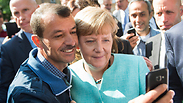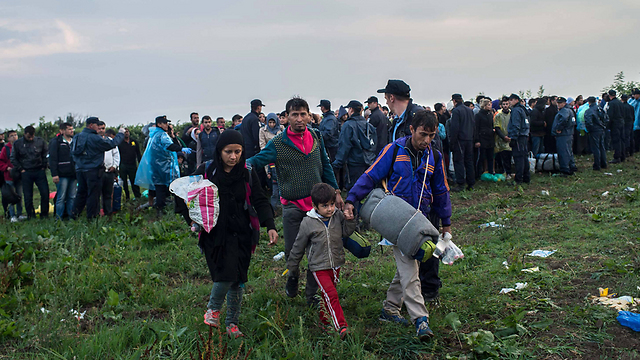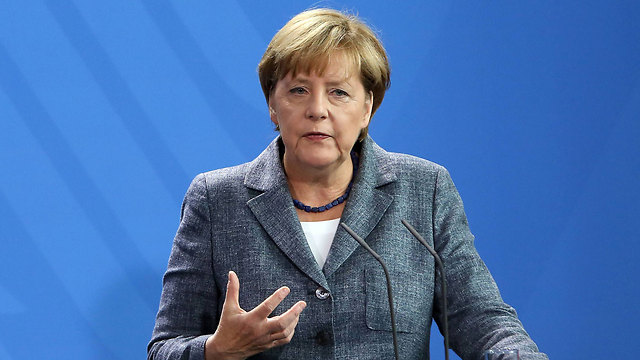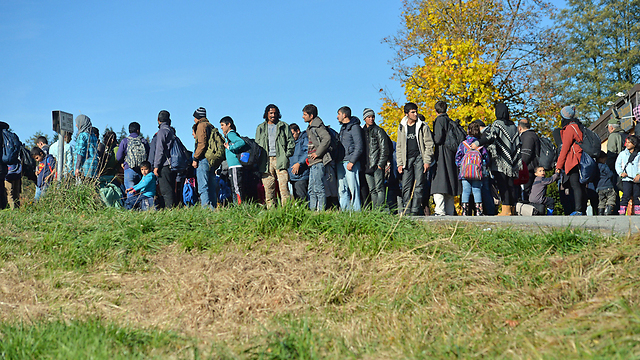
Germany remains divided on refugee question
'Transit zones' versus 'entry zones': German coalition still divided on how to receive refugees at the borders; 2-hour meeting at the Kanzleramt fails to yield tangible results.
German Chancellor Angela Merkel met on Sunday morning with Horst Seehofer, (the leader of Merkel's Christian Democrats' Bavarian sister party CSU), and Sigmar Gabriel from the Social Democrats to discuss their united approach to the refugee question. For two hours, the coalition partners sat together in the Kanzleramt in Berlin – and the result turned out to be underwhelming.
Merkel, Seehofer and Gabriel apparently did not come to terms on the issue. As government spokesman Steffen Seibert said afterwards, "there is a lot of common ground, but there are also some points that remain open and have yet to be settled." According to Seibert, these issues will be debated again on Thursday, when the German state minister-presidents are to come together as well.
'Transit' or 'entry zones?'
One of the questions at stake is whether Germany will install so called "transit zones" directly at the border, which is a concept favored by Merkel's CDU and Seehofer's CSU. Those zones would allow authorities to check asylum requests directly at the border before refugees are even allowed into the country, making it easier to reject asylum requests quickly and send people back.The Social Democrats, however, have rejected the concept: Gabriel called it a non-practical solution and asked mockingly to be shown the "soccer stadium" that might be converted into a transit zone. Instead of transit zones, the Social Democrats have proposed so called "entry zones." These are supposed to be decentralized zones located in the facilities where asylum seekers are first received. Refugees that do not report to the entry zones would receive lesser support and would suffer disadvantages in their asylum process, according to the Social Democrats' concept.
Seehofer does not agree to Merkel’s 'We can do this' claim
For Merkel, this disagreement about how to "welcome" the refugees is not the only dissonance to worry about - the CDU has been under attack from its very own sister party for a while now about the refugee issue. The failure to find a compromise on Sunday came after some heavy pressure from Seehofer towards Merkel during the last few weeks to take tougher action to stem the flow of people.
At one point, the CSU even threatened to sue the government if it did not stop the stream of refugees at the borders. Bavaria, in the south of Germany, where the CSU is located, has been and still is an entry point for thousands of refugees coming into the country.
German Interior Minister Thomas de Maizière had announced this summer that Germany expects about 800,000 refugees to come to the country in 2015. However, these numbers might have to be reviewed again. The Frankfurter Allgemeine Sonntagszeitung reported that Merkel had unofficially told the heads of the EU states that she expects the number of refugees coming to Germany to rise to 1 million this year.













